29+ Reflection Paper Examples to Download
Writing a reflection paper is an excellent way to enhance your critical thinking skills and delve deeper into your learning experience. Whether you’re analyzing a book, reflecting on a specific element, or even exploring your own goals and objectives, a reflection paper offers a platform for self-expression and personal growth. In this article, we will define what a reflection paper is, provide a step-by-step guide on how to write one, answer frequently asked questions, and conclude with the importance and function of this unique form of writing.
1. Student Reflection Paper
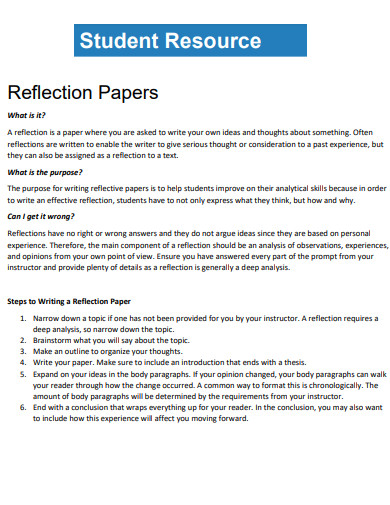
tutor.com
2. Sample Reflection Paper
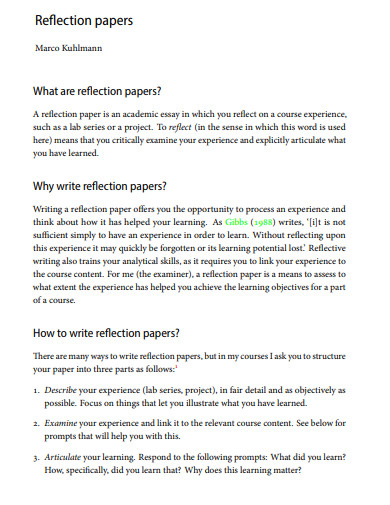
ida.liu.se
3. College Reflection Paper
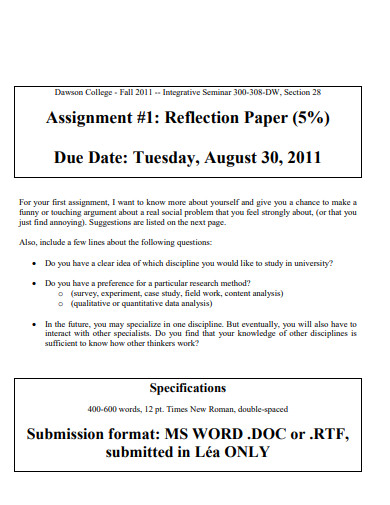
writing.dawsoncollege.qc.ca
4. Self Reflection Paper
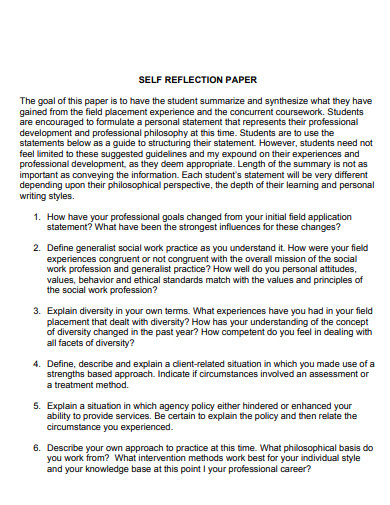
wmich.edu
5. High School Reflection Paper

mhsmi.org
6. Subject Reflection Paper
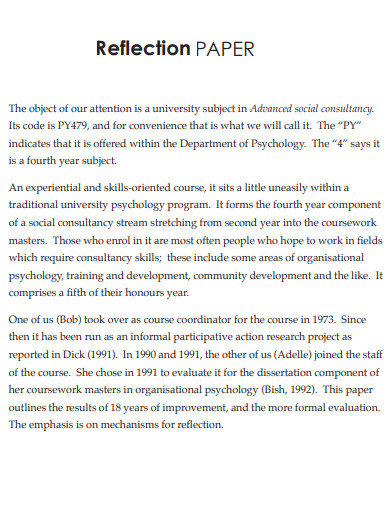
aral.com.au
7. Class Reflection Paper
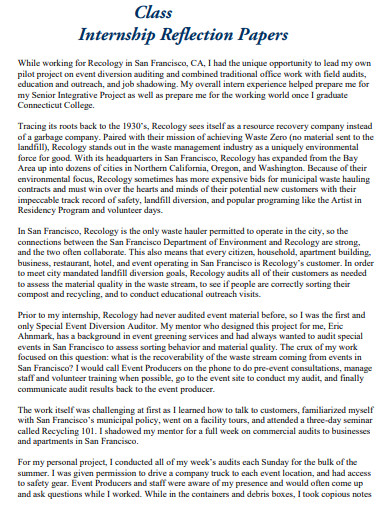
conncoll.edu
8. APA Reflection Paper
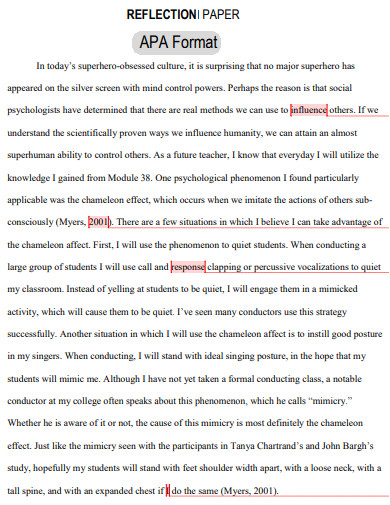
mccc.edu
9. Education Reflection Paper
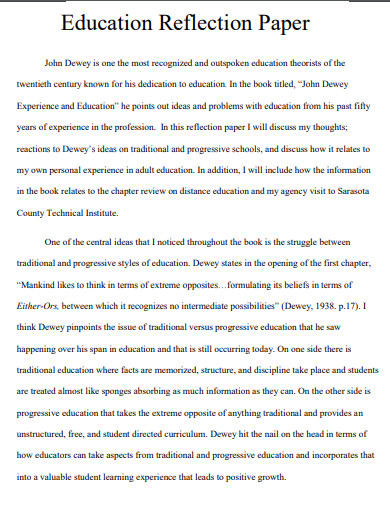
nebula.wsimg.com
10. English Reflection Paper
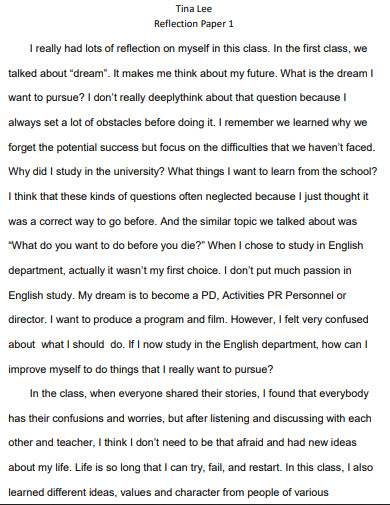
lc.nutn.edu.tw
11. Reflection Paper Essay
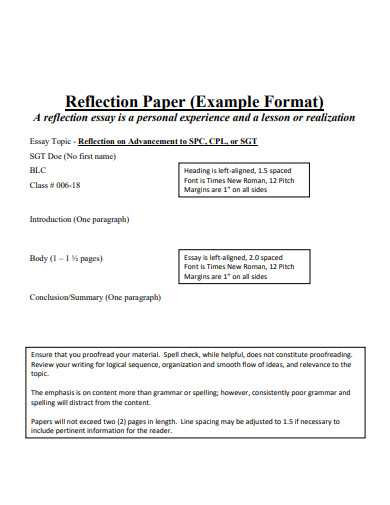
usar.army.mil
12. Reflection Paper Teacher
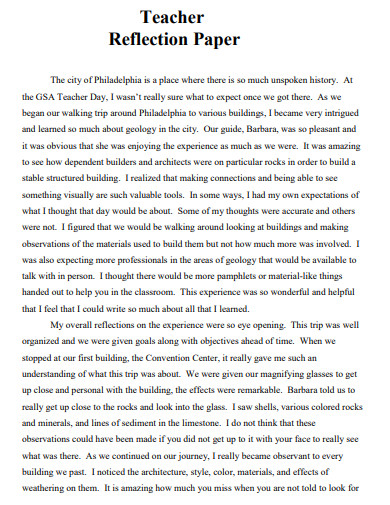
sas.upenn.edu
13. Personal Reflection Paper
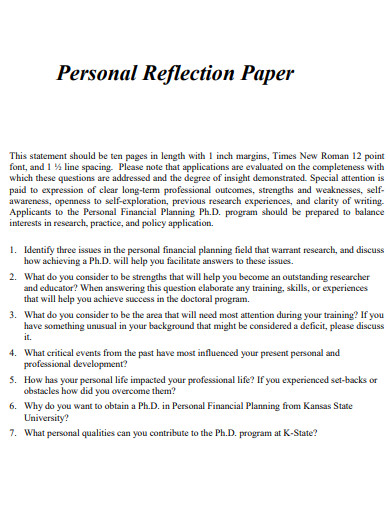
hhs.k-state.edu
14. Reflection Paper Outline
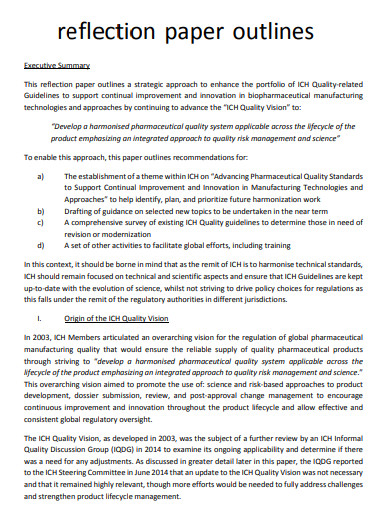
admin.ich.org
15. Math Reflection Paper
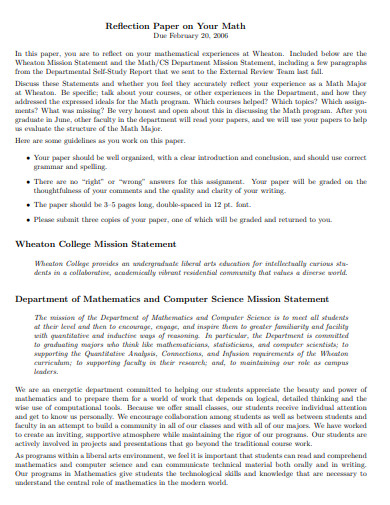
tratliff.webspace.wheatoncollege.edu
16. Work Immersion Reflection Paper
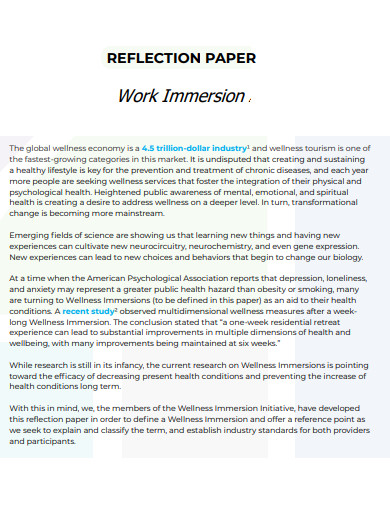
globalwellnessinstitute.org
17. Reflection Paper Introduction
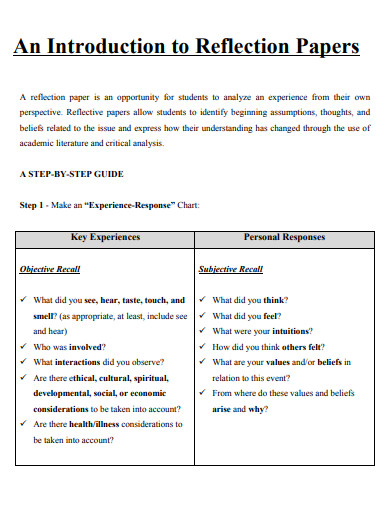
torontomu.ca
18. Movie Reflection Paper

aals.org
19. Psychology Reflection Paper
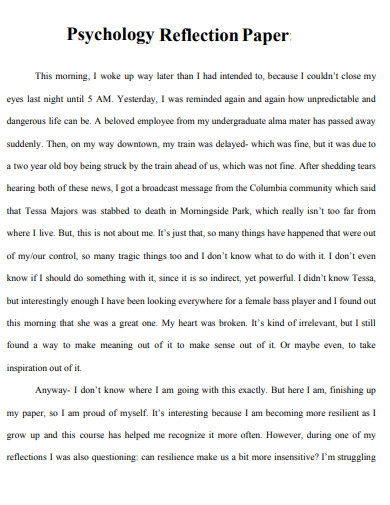
neslykmusic.com
20. Experience Reflection Paper
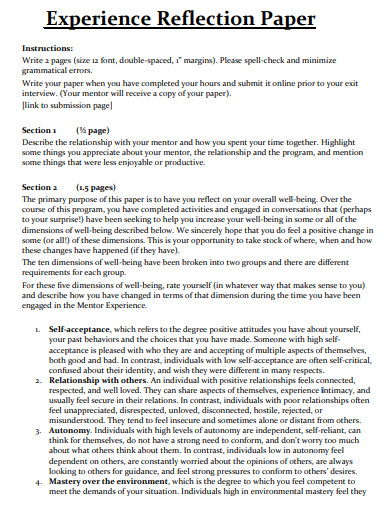
jmu.edu
21. Internship Reflection Paper
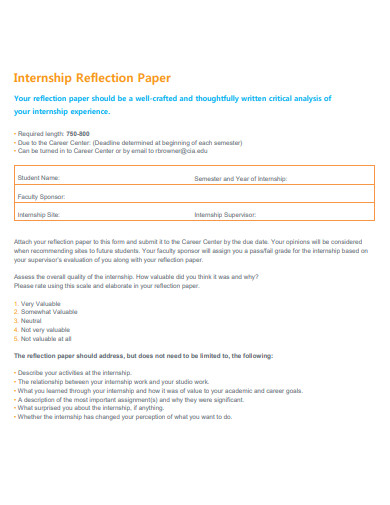
cia.edu
22. Story Reflection Paper
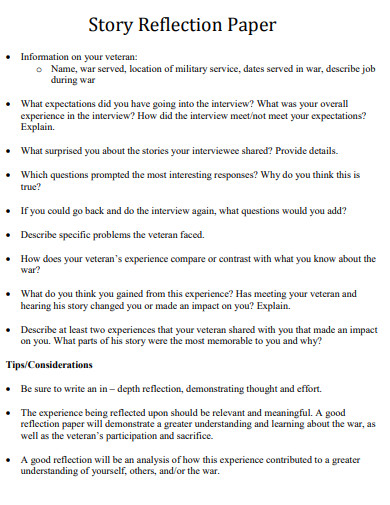
siue.edu
23. Leadership Reflection Paper
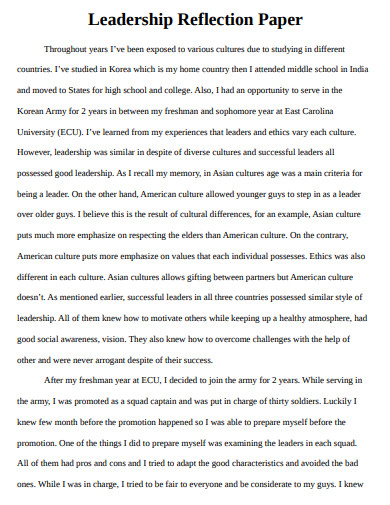
media.gradebuddy.com
24. Reflection Paper Project
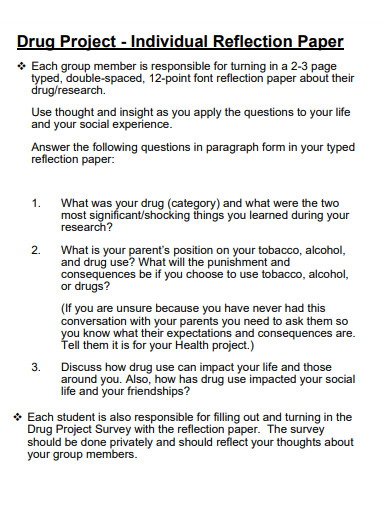
montgomeryschoolsmd.org
25. Community Service Reflection Paper
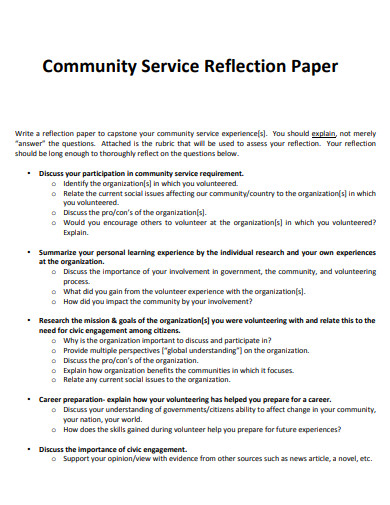
wp.lps.org
26. Course Reflection Paper
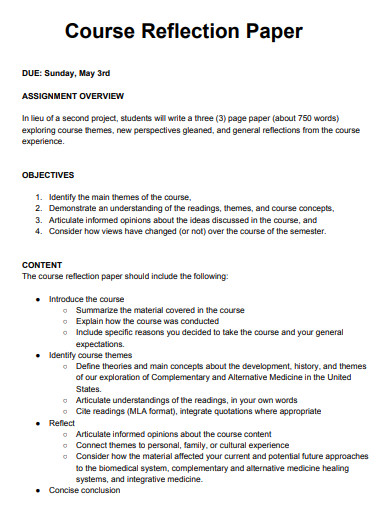
bpb-us-w2.wpmucdn.com
27. science Reflection Paper
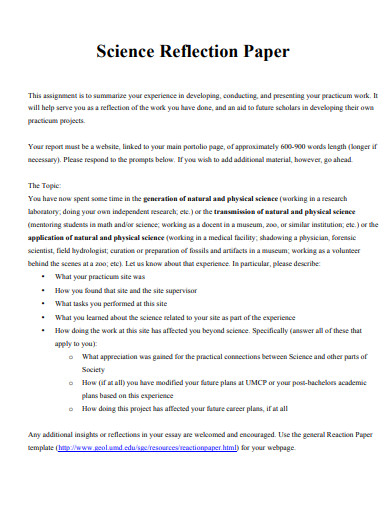
geol.umd.edu
28. Reflection Paper Example
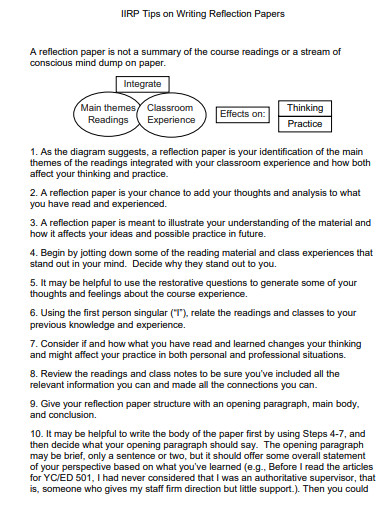
iirp.edu
29. Reflection Paper Template
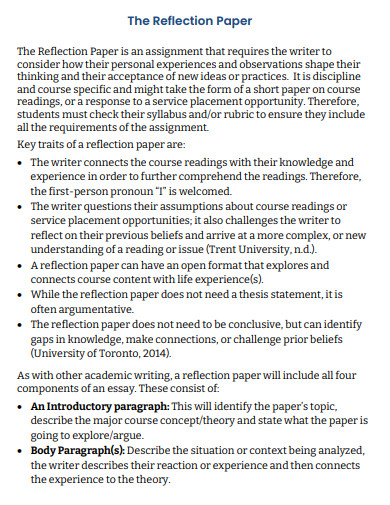
bowvalleycollege.ca
30. Basic Reflection Paper
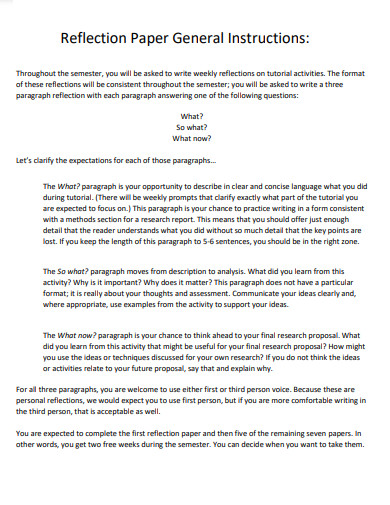
utm.utoronto.ca
What is a Reflection Paper?
A reflection paper is a written piece that allows you to share your thoughts, insights, and personal reactions about a particular subject, experience, or text. It goes beyond a simple summary by providing a deeper exploration of your own perceptions, emotions, and connections to the topic at hand. Reflection papers are often used in educational settings, such as college essays, to encourage critical thinking, self-awareness, and the development of analytical skills. They can focus on various aspects, including analyzing a book, discussing specific elements, or reflecting on personal goals and objectives.
How to Write a Reflection Paper
Writing a reflection paper can be an enriching and rewarding experience, allowing you to delve into your thoughts and emotions while developing critical thinking skills. However, if you’re new to the process, it can feel overwhelming. Fear not! In this step-by-step guide, we will walk you through the process of writing a reflection paper, providing you with a clear roadmap to follow. Whether you’re reflecting on a book, analyzing specific elements, or exploring personal goals and objectives, this guide will equip you with the tools and techniques to craft a thoughtful and engaging reflection paper. So, let’s embark on this journey of self-discovery and learn how to write a reflection paper format that captivates readers and unlocks new insights.
Step 1: Introduction
To begin your reflection paper, introduce the topic or experience you will be reflecting upon. Engage your readers by providing context, sharing relevant details, or posing thought-provoking questions. A compelling introduction sets the tone for the rest of your paper and captures the reader’s attention.
Step 2: Description and Analysis
In this section, describe the subject or experience you are reflecting upon. Use descriptive language to paint a vivid picture and provide necessary background information. Then, delve into the analysis by exploring your thoughts, feelings, and observations about the topic. Discuss how the experience or text has impacted you and why it stands out.
Step 3: Connection to Personal Experience or Knowledge
Make connections between the subject or experience and your personal life or existing knowledge. Relate the ideas or themes to your own experiences, beliefs, or values. This step demonstrates your ability to think critically and draw meaningful connections.
Step 4: Evaluation and Interpretation
Evaluate the subject or experience based on your own perspective. Offer your interpretations, opinions, and judgments, supported by evidence from the text or experience. Analyze the strengths and weaknesses, and consider any potential implications or broader significance.
Step 5: Conclusion
In your conclusion, summarize the key points of your reflection paper. Reflect on the overall impact of the subject or experience on your personal growth, learning, or development. Consider any new insights gained, questions raised, or future actions that might result from your reflection.
FAQs
What is the importance of writing a reflection paper?
Writing a reflection paper encourages critical thinking, self-reflection, and a deeper understanding of a subject or experience. It allows you to examine your own thoughts, emotions, and connections, promoting personal growth and self-awareness. Reflection papers are widely used in educational settings to develop analytical skills and foster a deeper engagement with the material.
Do reflection papers follow a specific text structure?
Unlike traditional essays, reflection papers do not follow a rigid text structure. However, they generally include an introduction, description and analysis, connection to personal experience or knowledge, evaluation and interpretation, and a conclusion. This flexible structure allows for personal expression and creativity.
How important is punctuation in a reflection paper?
Punctuation plays a crucial role in maintaining clarity and coherence in your reflection paper. Proper punctuation enhances readability, helps convey your ideas effectively, and ensures that your thoughts flow smoothly. Take care to use appropriate punctuation marks, such as commas, periods, and quotation marks, to convey your intended meaning accurately.
In conclusion, reflection papers serve a vital function in developing critical thinking skills, self-awareness, and personal growth. They offer a platform for exploring various subjects, analyzing books or specific elements, and reflecting on personal goals and objectives. By engaging in the process of writing a reflection paper, you embark on a journey of self-discovery and deeper understanding. So, embrace this unique form of writing and uncover the valuable insights that lie within your reflections.


